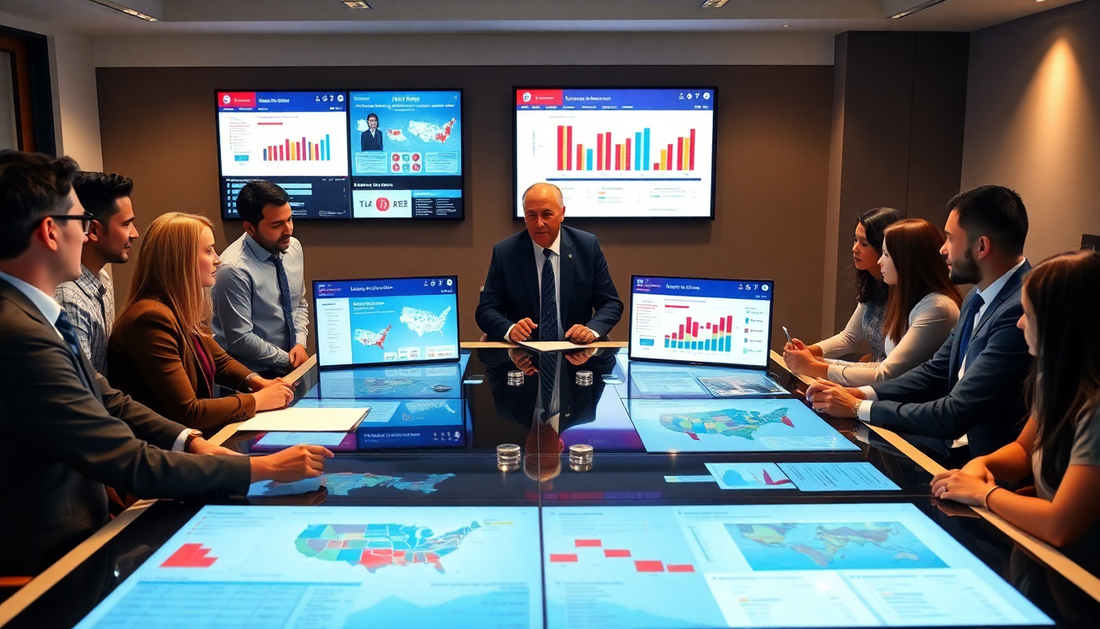
The Changing Face of Political Campaigns: Navigating the Evolving Landscape
LINKShare
In the ever-evolving world of politics, the strategies and tactics employed by candidates and their teams have undergone a remarkable transformation. As the landscape of political campaigning continues to shift, understanding the evolution of these approaches has become increasingly crucial for those seeking to make their mark on the political stage.
The Rise of Digital Dominance
The digital revolution has undoubtedly left an indelible mark on the world of political campaigns. Gone are the days when candidates relied solely on traditional media outlets and door-to-door canvassing to reach their constituents. Today, the digital realm has become the epicenter of political outreach, with social media platforms, targeted advertising, and data-driven analytics playing a pivotal role in shaping campaign strategies.
The Power of Social Media
Social media has emerged as a game-changer in the political arena, allowing candidates to connect directly with voters, bypass traditional media filters, and craft their narratives with unprecedented control. Platforms like Twitter, Facebook, and Instagram have become powerful tools for mobilizing supporters, engaging with constituents, and amplifying campaign messages. Savvy candidates have learned to leverage the power of these digital platforms to build grassroots movements, generate viral content, and rally their base.
Targeted Advertising and Data-Driven Strategies
The rise of digital advertising has revolutionized the way political campaigns reach and persuade voters. Campaigns now have access to a wealth of data that allows them to precisely target individuals based on their demographics, interests, and voting behaviors. By leveraging this data, candidates can craft highly personalized messages and tailor their outreach efforts to specific segments of the electorate, maximizing the impact of their campaign resources.
The Evolving Role of Traditional Media
While digital platforms have undoubtedly taken center stage, traditional media outlets continue to play a crucial role in political campaigns. However, the relationship between candidates and the media has evolved, with a greater emphasis on managing the narrative and controlling the flow of information.
The Changing Dynamics of Media Engagement
Candidates have become increasingly strategic in their interactions with the media, carefully curating the information they share and the access they grant. The rise of social media has empowered candidates to bypass traditional media outlets, allowing them to communicate directly with voters and shape the public discourse on their own terms.
The Importance of Earned Media
Despite the growing dominance of paid digital advertising, the power of earned media remains a critical component of successful political campaigns. Candidates who can generate positive media coverage, whether through high-profile events, policy announcements, or strategic public relations efforts, can amplify their message and reach a wider audience.
The Resurgence of Grassroots Movements
In recent years, we have witnessed a resurgence of grassroots political movements, driven by a desire for more authentic and community-based engagement. These movements have challenged the traditional top-down approach to campaigning, empowering citizens to take a more active role in the political process.
Harnessing the Power of Grassroots Mobilization
Successful campaigns have learned to harness the energy and enthusiasm of grassroots movements, leveraging the power of volunteers, local organizers, and community-based initiatives to build a strong, decentralized network of support. By tapping into the passions and concerns of local communities, candidates can cultivate a sense of ownership and investment among their supporters, leading to more effective voter outreach and mobilization.
The Importance of Authentic Engagement
In an era of increasing political cynicism, voters are craving more authentic and transparent engagement from their political leaders. Candidates who can demonstrate a genuine connection with their constituents, listen to their concerns, and respond with meaningful policy proposals are more likely to resonate with the electorate and build lasting support.
The Future of Political Campaigns
As we look to the future, it is clear that the landscape of political campaigning will continue to evolve, driven by technological advancements, shifting societal trends, and the ever-changing preferences of the electorate. Successful candidates and their teams will need to remain agile, innovative, and responsive to these changes, adapting their strategies to meet the demands of a dynamic political environment.
Embracing Emerging Technologies
From artificial intelligence-powered voter targeting to virtual reality-enhanced campaign events, the future of political campaigns will be shaped by the integration of cutting-edge technologies. Candidates who can harness these innovations to enhance their outreach, streamline their operations, and provide a more immersive experience for voters will have a distinct advantage in the political arena.
Fostering Civic Engagement
As the political landscape continues to evolve, there is a growing emphasis on the importance of fostering civic engagement and empowering citizens to play a more active role in the democratic process. Successful campaigns will need to find ways to engage with their constituents beyond the traditional election cycle, building ongoing relationships and creating opportunities for meaningful participation.
Navigating the Challenges of Polarization
In an era of heightened political polarization, candidates will need to navigate the complex terrain of divisive rhetoric and partisan gridlock. Effective campaigns will need to find ways to bridge divides, appeal to a diverse range of voters, and promote a message of unity and common purpose, even in the face of increasing societal fragmentation.
The evolution of political campaign strategies is a dynamic and multifaceted process, shaped by the ever-changing demands of the electorate, the rapid pace of technological advancement, and the shifting social and cultural landscape. As we look to the future, the candidates and teams who can adapt, innovate, and engage with their constituents in meaningful and authentic ways will be the ones who emerge victorious in the high-stakes world of modern politics.
